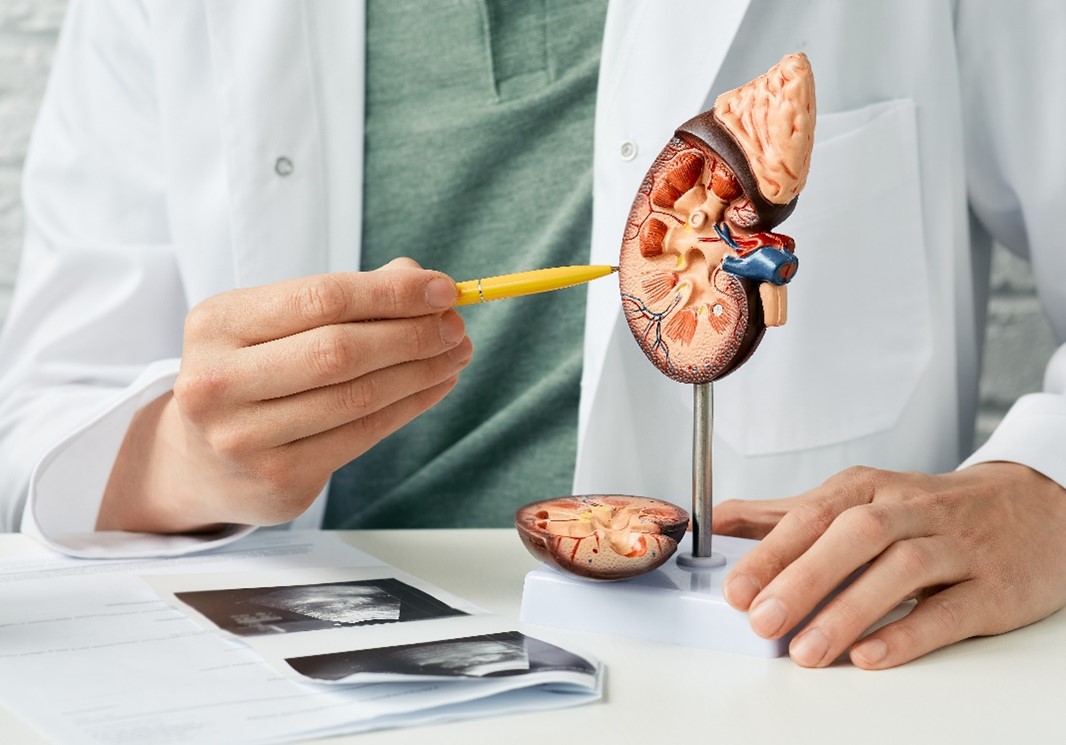Although most people are born with two kidneys, living with one kidney is entirely possible with the right care. The kidneys are essential for filtering waste, balancing body fluids, regulating blood pressure, and maintaining proper levels of electrolytes like sodium and potassium. When you’re living with one kidney, it’s important to take extra precautions, but with proper monitoring, a healthy lifestyle, and regular check-ups, you can still enjoy a full and active life.
In this blog, we will explore why some people have one kidney, potential health concerns, and tips for protecting kidney health long-term.
Why Do People Have One Kidney?
There are different reasons why a person may have only one kidney:
- Renal agenesis: Some people are born with only one kidney, a condition known as a solitary kidney.
- Kidney dysplasia: Both kidneys may form, but only one functions properly.
- Surgery: A kidney may be surgically removed (nephrectomy) due to cancer, injury, or other disease.
- Kidney donation: Some people choose to donate one kidney to save another person’s life through transplantation.
Regardless of the cause, living with one kidney is not uncommon. Studies show that the remaining kidney often adapts and grows larger to compensate for the missing one.
Can You Live with One Kidney?
Yes, you can. In fact, the majority of people with a single functioning kidney go on to live normal, healthy lives. A single healthy kidney can do almost the same amount of work as two kidneys. However, it’s important to remember that one kidney has no backup, so protecting it is essential.
That’s why regular monitoring, lifestyle adjustments, and medical check-ups are recommended for anyone who has only one kidney.

What are the Possible Complications When Living with One Kidney
While most people do well, some may experience:
- High blood pressure (hypertension): A common concern in people with one kidney.
- Protein in the urine (proteinuria): May indicate early kidney damage.
- Chronic Kidney Disease (CKD): In rare cases, kidney function may slowly decline over time.
These complications often develop gradually, and with proper management, most people can prevent serious kidney damage.
How Is Diagnosis and Monitoring Important When Living with One Kidney?
Many people discover they have only one kidney by chance, through an imaging test like an ultrasound, CT scan, or X-ray. If you are living with one kidney, regular monitoring is very important.
Tests your doctor may recommend include:
- Blood test (eGFR): To measure how well your kidney filters waste.
- Urine test (uACR): Used to detect the presence of protein in the urine.
- Blood pressure check: At least once a year, since hypertension can damage the kidney over time.
How Can You Protect Your Health While Living with One Kidney?
Living with a single kidney means being mindful of your lifestyle and health habits. Some important tips include:
- Manage blood pressure: Hypertension is a leading cause of kidney damage. Regular checks and treatment, if necessary, are vital.
- Control blood sugar: If you have diabetes, good blood sugar management protects kidney function.
- Limit salt intake: Too much sodium can raise blood pressure.
- Stay hydrated: Drinking enough fluids helps the kidney flush out toxins.
- Avoid unnecessary medications: Overuse of NSAIDs (like ibuprofen, naproxen, or aspirin) can harm the kidney.
- Schedule regular checkups: It’s recommended to have yearly blood tests, urine tests, and blood pressure monitoring.

Nutrition for One Kidney
If your kidney is functioning well, a special diet is generally not necessary. However, following a balanced diet is always important:
- Eat more fruits and vegetables.
- Choose fresh, whole foods over processed ones.
- Limit added salt and sodium-heavy foods.
- Maintain a healthy weight.
If you develop chronic kidney disease (CKD), your healthcare provider may recommend dietary changes such as controlling protein, potassium, or phosphorus intake. Always consult a registered dietitian if dietary changes are needed.

Exercise and Lifestyle
Staying physically active is important for overall health, including kidney health. Aim for at least 150 minutes of moderate activity per week, such as walking, cycling, or dancing.
If you have one kidney, it’s important to be cautious with contact sports like football, boxing, martial arts, or hockey, since a direct hit to the kidney can cause injury. If you choose to participate, wearing protective padding is strongly recommended.
Medications and Treatment
Individuals with a healthy single kidney typically do not require any medications. However, if you develop CKD, high blood pressure, or diabetes, your doctor may prescribe medicines such as:
- ACE inhibitors or ARBs: To control blood pressure and protect kidney function.
- Diuretics: To manage fluid balance.
- Other kidney-protective medications depend on your health condition.
If you have received a kidney transplant, you will need anti-rejection medications (immunosuppressants) to prevent the body from rejecting the new organ.
Emotional and Mental Wellbeing
Living with one kidney can sometimes be emotionally challenging, especially for those who donated a kidney or received a transplant. Caring for your mental health is just as important as taking care of your physical health. Speaking with friends, family, or a professional counselor can be beneficial. Support groups can provide valuable opportunities to connect with others facing similar experiences.
When to See a Doctor
You should contact your healthcare provider if you experience symptoms such as:
- Swelling in the face, hands, or ankles
- Foamy urine (sign of protein loss)
- Unexplained fatigue
- Persistent high blood pressure
- Changes in urine output
Early detection of kidney problems allows for better treatment and management.
So, can you live with one kidney? The answer is yes. Most people with a single kidney live long, healthy lives without major complications. It is essential to take precautions, safeguard your kidney, and manage risk factors such as high blood pressure and chronic kidney disease (CKD).
Living with one kidney does not mean living with limitations, it means living with awareness. By following healthy habits, staying active, eating a balanced diet, and keeping up with regular checkups, you can protect your kidney and enjoy a full, active life.